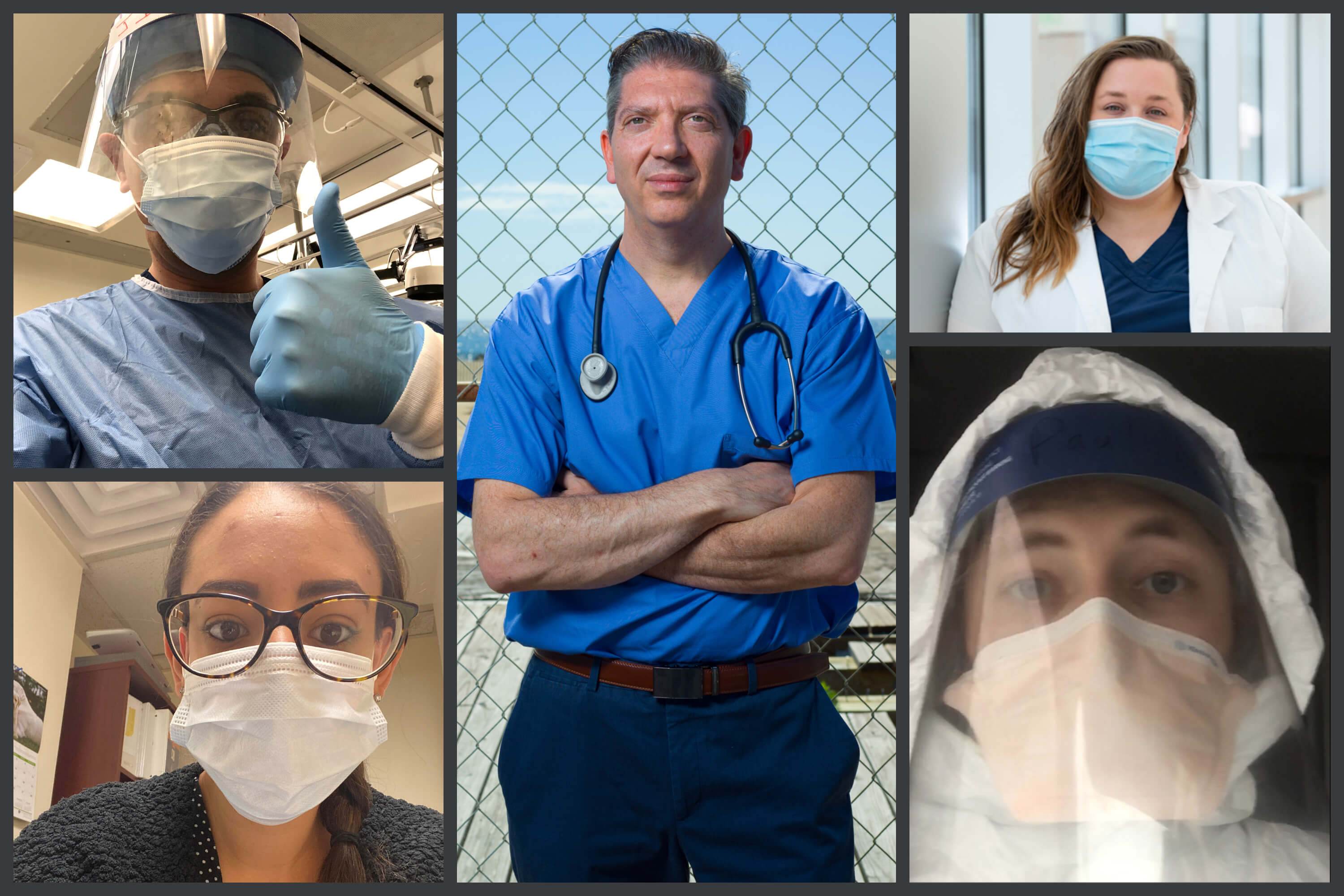
Dispatches From the Front Lines
Since the pandemic’s earliest days, Monmouth University alumni have been engaged in the fight against COVID-19 on a number of fronts. Five of them shared their stories with us. 1. Nurse practitioner Kristopher Jackson ’09 takes you inside a New York City ICU during the peak of the outbreak. “No amount of experience can prepare […]
Since the pandemic’s earliest days, Monmouth University alumni have been engaged in the fight against COVID-19 on a number of fronts. Five of them shared their stories with us.
1. Nurse practitioner Kristopher Jackson ’09 takes you inside a New York City ICU during the peak of the outbreak.
“No amount of experience can prepare you for having to tell someone that their loved one will likely die alone because it is unsafe for anyone to be by their side.”
2. Medical social worker Lauren Parks ’16M discusses the challenges of helping COVID-19 patients at one Jersey Shore hospital.
“Nine out of 10 patients will still need oxygen, or a walker when they’re discharged home; some need hospital beds and in-home physical and occupational therapy.”
3. EMT Paul Haines ’18 describes what it’s like working in a COVID-19 hot zone.
“In my first week of deployment I helped roughly a hundred patients. About 10% of them died. In my previous experiences as an EMT, less than 1% of my patients died each year. So it was shocking.”
4. Social services director Nairee Rodriguez ’18M describes how COVID-19 has affected life inside one rehab and long-term care facility.
“I kind of hold my breath in the morning until we get our reports in to see who has passed. It’s been really rough because some of our staff has been with us for 25 to 40 years and they get very attached to the patients, especially those who have been with us for a long time.”
5. Dr. Jeffrey Miskoff ’93, a pulmonologist, is taking on COVID-19 in the ICU and on social media.
“When every case is COVID and nothing but COVID for a month straight, it starts to give rise to anxiety, and I think there will probably be some PTSD from those who worked closely with very sick patients.”